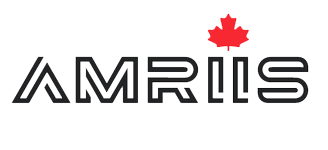Any foreign national wishing to work in Canada must obtain the appropriate authorization. In most cases, this means having a valid work permit. However, it is important to highlight that certain exemptions allow some foreign nationals to work without needing a work permit.
Open work permit

A work permit is a legal document that allows a foreign national to work in Canada. An open work permit, in particular, is not restricted to a specific employer or location. This allows the holder to work for different employers and in various locations across Canada. However, some open work permits may include conditions or restrictions that the worker must adhere to. These permits are mainly issued under the following immigration programs:
- Post-Graduation Work Permit (PGWP)
- International Experience Canada (IEC)
- Spousal or Common-Law Partner Sponsorship in Canada
- Transitional Open Work Permit (TOWP)
These permits do not require a Labour Market Impact Assessment (LMIA).
Advantages of an open work permit
Open work permits are highly sought after due to the freedom they offer their holders. Unlike traditional work permits that tie a foreign national to a specific employer, an open work permit allows one to work for any employer in Canada and to move freely from one location to another. This flexibility enables foreign workers to enhance their professional experience in Canada, thereby improving their chances of becoming eligible for permanent residency through various immigration programs, such as:
- Express Entry (EE)
- Federal Skilled Worker Program (FSWP)
- Federal Skilled Trades Program (FSTP)
- Canadian Experience Class (CEC)
- Provincial Nominee Programs (PNP)
- Immigration to Quebec
However, even with an open work permit, certain employers are prohibited. Holders cannot accept jobs with:
- Employers deemed ineligible due to non-compliance with IRCC regulations
- Employers who regularly provide services such as stripping, erotic dancing, escort services, or erotic massages.
Who is eligible?
Foreign nationals in the following situations may be eligible to apply for an open work permit. The specific eligibility requirements and application steps vary based on each situation listed below:
- Spouses or common-law partners of certain temporary foreign workers
- Spouses or common-law partners of certain international students
- Foreign students who have graduated from a designated learning program in Canada
- Permanent residency applicants under the sponsorship of a spouse or common-law partner in Canada
- Young workers participating in International Experience Canada (IEC) programs
- Refugees, asylum seekers, protected persons, and their family members
Each category offers specific advantages, but the eligibility criteria differ. Therefore, it is essential to thoroughly understand the requirements before applying.

Ready to get started?
Do you have questions about working in Canada or hiring foreign workers? Contact us today to find out how we can assist you!



